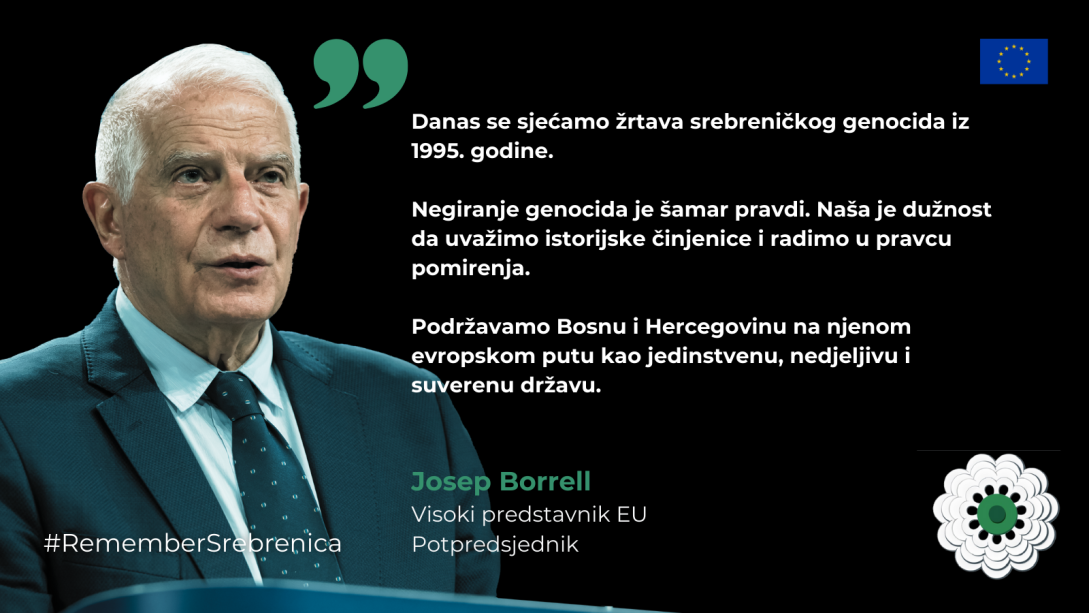Op-Ed by the High Representative/Vice-President Josep Borrell: “Remembering Srebrenica: Confronting History to Build Peace”

In July 1995, one of the darkest chapters in modern European history was written. Over 8,300 boys and men were systematically murdered and buried in mass graves in the hills surrounding the town of Srebrenica. Today, 29 years later, 14 of those victims, who were only recently identified, will be laid to rest at the Srebrenica–Potočari Memorial and Cemetery. For their families and loved ones, a long and painful period of uncertainty finally comes to an end.
Srebrenica remains a deep scar in Europe’s history. The failure to prevent this genocide is a burden we continue to bear. Both the International Criminal Tribunal for the former Yugoslavia and the International Court of Justice have unequivocally defined this atrocity as genocide.
We vowed never to forget – neither the victims, nor the enduring pain of their families and their loved ones. Their memory compels us to work every day to ensure that history does not repeat itself, in a world where peace feels increasingly fragile.
By designating 11 July as the "International Day of Reflection and Commemoration of the 1995 Genocide in Srebrenica," the United Nations General Assembly, has elevated the significance of this tragedy beyond Europe.
Yet, a troubling tendency to denial persists in Bosnia and Herzegovina and throughout the region. Any denial of this genocide is a profound affront to justice and a barrier to reconciliation. The EU has a clear stance: there can be no place for genocide denial, historical revisionism or the glorification of war criminals in societies that value truth and justice.
Reconciliation is everyone’s responsibility. It is not an abstract goal: it must be a daily practice that permeates politics, education and all corners of everyday life. It is in particular the role of political leaders in the region to reject divisive rhetoric and actively promote reconciliation. This requires acknowledging historical facts, honouring the victims, and fostering a culture of peace and cooperation.
In March, the leaders of the EU member states decided to open EU accession negotiations with Bosnia and Herzegovina. The beginning of this journey towards EU membership brings renewed hope for political stability, economic growth, and a better future for BiH citizens. It underscores the EU’s commitment to support Bosnia and Herzegovina in establishing a functioning democratic state and society where pluralism, justice, and human dignity prevail.
We showed that it is possible: the EU itself was conceived to bring peace and reconciliation to a European continent long divided by bloody fratricidal wars. This would not have been possible without the acceptance of established historical facts and a commitment to build institutions able to secure a lasting peace.
The Srebrenica genocide is a stark reminder of what can happen when hatred is unleashed and promoted by political elites. It is our common duty to ensure that this memory serves as a powerful reminder of the consequences of such hatred and intolerance. It is our common duty to make sure that these atrocities will never happen again. The European Union stands with Bosnia and Herzegovina in this endeavour.





